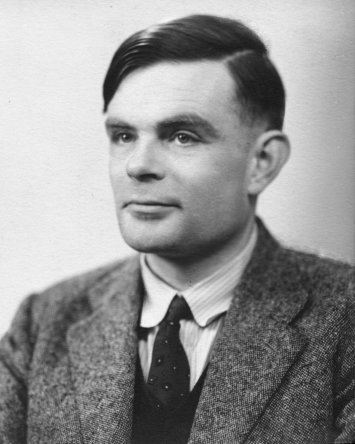Human-Centred Computing News
EATCS Fellowship for Artur Czumaj
Professor Artur Czumaj has been made an EATCS Fellow for "contributions to analysis and design of algorithms, especially to understanding the role of randomization in computer science”.
Dr Sylvain Schmitz joins DCS as Leverhulme Visiting Professor
The department and DIMAP are delighted to welcome Sylvain Schmitz from LSV, ENS Cachan, CNRS and INRIA Saclay, who has joined us this week as Leverhulme Visiting Professor.
Funded by the Leverhulme Trust, Dr Schmitz will spend 6 months at Warwick, collaborating with Dr Ranko Lazic and other colleagues on logics and games for algorithmic verification, and delivering three research lectures.
Warwick University to partner in new Alan Turing Institute

Warwick University is one of only five universities to have been considered worthy of establishing the prestigious £42m Alan Turing Institute for Data Science, thanks to our hard-earned reputation for world-class research.
This means our exceptional researchers from Mathematical Sciences will be at the forefront of the UK’s approach to big data. We’ll help the Institute to meet society’s toughest challenges, and strengthen the links between academia and technology industries.
Using the headquarters at the British Library in London as a base, we’ll use our research strength - as demonstrated by our excellent Research Excellence Framework (REF) performance - to fully exploit the trends and patterns found within huge data sets.
Warwick’s existing activities in data science are already significant. This includes two major EPSRC-funded Science and Innovation centres: Centre for Research in Statistical Methodology and the Centre for Discrete Mathematics and Applications. It also includes three of the new Centres for Doctoral Training (Oxford and Warwick Statistical Programme, Mathematics for Real-World Systems, and Urban Science and Progress), all of which will train highly qualified PhD students in big data and complex modelling. Warwick also holds 3 EPSRC 5-year Programme Grants relevant to this area, and is the only university in the UK to teach an undergraduate degree course in Data Science; Computer Science also leads the highly successful MSc in Data Analytics.
By working alongside the very best, we’ll make the UK a world leader in big data.
What does this mean for Warwick?
The Institute will bring together leaders in advanced mathematics and computing science from the five lead universities and other partners. Its work is expected to encompass a wide range of scientific disciplines and be relevant to a wide range of business sectors.
Professor Stephen Jarvis, Head of Department, Computer Science said:
We are delighted to have been selected as one of the five universities that will establish the world-leading Alan Turing Institute. Mathematical Sciences (Mathematics, Statistics and Computer Science) at Warwick are extremely strong; all three Departments are ranked in the Top 3 for research in the country.
The Turing Institute will be a magnet for world-leading research and application in data science. We are thrilled to be able to shape that future through Warwick’s engagement, and look forward to the many benefits to our postgraduate and undergraduate programmes as a result.
The announcement of our involvement in the Alan Turing Institute is undoubtedly good news, but what does it mean for Warwick? Professor Tim Jones, Pro-Vice Chancellor for Science, Engineering and Medicine explains:
It means Warwick is right at the top table in the area of data science. This is the UK’s strategic priority to pull together the best academics and other partners across the country to tackle the challenges of big data and to exploit the opportunities. There are four other universities in the Institute – Oxford, Cambridge, Edinburgh and UCL – and Warwick will be the fifth. I think that’s a great measure for the quality of our work in the area.
What is Big Data?
Big Data is one of the areas where our research excels thanks, in part, to our world leading mathematics, computer science and statistics departments. Warwick has long prized itself on using interdisciplinary and multidisciplinary approaches to answer the pressing questions of our time, and, as big data throws up such questions, that expertise comes to the fore.
Find out more about what Big Data means at Warwick
Or follow the conversation on twitter at #warwickturing
